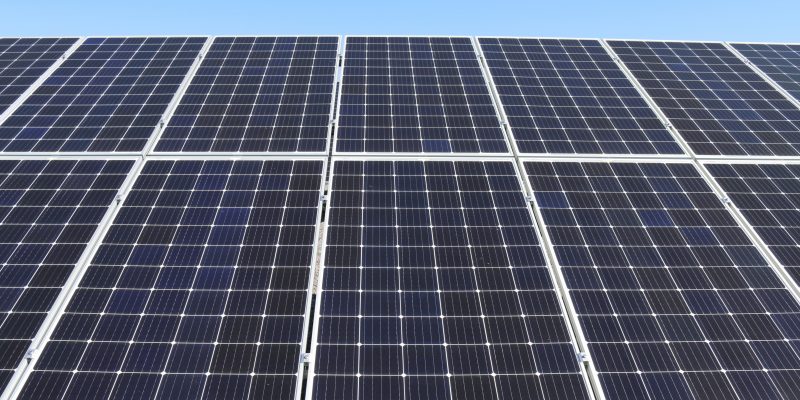Solar panels are becoming increasingly popular. They save a lot of money and energy on power bills, but many people wonder: “Can I use a car battery for solar panels?”
When you’re off-grid, the batteries in your solar power system are the most critical part of the setup. It’s essential to take good care of your battery bank. After the money you spent on it during system installation, it represents a sizable investment—and using a car battery as a replacement isn’t a smart move if yours fails. It will cause the original expenditure to be wasted. To explain, here are the reasons why.
Can A Car Battery Be Used For A Solar Panel?
The average car battery only lasts between two and three years. To answer your question, yes, you can use car batteries to store energy generated by solar panels, but the output or efficiency will likely suffer.
A car battery can power a small solar panel, but this won’t be enough to run your house. You’d need many batteries working together—which is not practical! You should not use them until they are completely dead; however, that will happen every time you put them in the solar panels—so don’t!
There’s no denying the resemblance between solar batteries and conventional car batteries. The former is more cost-effective, but it is not suitable for solar panels. So, which batteries are compatible with solar panels? Take a look, and find something that works for you.
Different Types of Solar Batteries You Can Use
When it comes to storing energy for extended periods, solar batteries excel. In addition, they are superior in that they can keep the lights on for longer without breaking down or losing efficiency. It can be repeatedly charged and discharged without reducing its useful life. Its durability sets it apart; it won’t give up after a short period of use.
Solar panels can be paired with a variety of solar batteries, some of which are listed below.
Lead Acid
They are commonly seen in autos and cars. Despite their low energy density (the ability to hold a lot of energy per unit weight), lead-acid batteries are still the most common choice for use in a solar home setup. A variety of lead-acid batteries are available, including flooded and sealed types. Depending on the intended function and safe discharge depth, they can be classified as shallow or deep cycles.
Lithium-Ion
This battery is one of the better options for solar panels. It has a longer life duration and can withstand battery charge and recharge cycles. Because of their energy efficiency and high recharge ratings, lithium batteries distinguish themselves from other batteries.
Lithium-ion batteries are lighter and more compact than lead-acid batteries. They also have a higher maximum discharge rate and longer lifespan when compared with lead acid, but lithium-ion is generally more expensive.
Flow
Chemical reactions occur within a flow battery as ions move between two chambers, creating energy. Despite their high efficiency, flow batteries have a low energy density because the tanks containing the electrolyte liquid must be quite large to store significant amounts of energy. Because of their size, they are an expensive and inconvenient option for most household uses. Flow batteries are far more suitable for larger spaces and applications.
Nickel Cadmium
These alkaline batteries use nickel as the positive material and cadmium as the negative material. This type is ideal for use in an emergency or as a backup. It cannot be used for daily cycles or usage. Another consideration is the cost of this battery. It is relatively pricey in comparison to others.
How to Choose the Best Solar Panel Battery
Solar panels provide significant financial savings, but you must invest in installing and maintaining the system. Choosing a long-lasting battery is one way to save money; it ensures that your solar panel will work efficiently over many years. When you are shopping for a solar panel battery, you should consider the following:
Specifications
You must understand which battery will function finest for your panel. This can be accomplished by researching the battery specifications of your solar panels. It’s generally in the instructions, but you can also ask the manufacturer.
It would help if you also comprehend the various battery kinds discussed above. Knowing the different types of batteries can help you choose the best one for your solar panels. The greatest battery will be the best off-grid storage solution for your boards.
Materials And Manufacturing Details
It is also critical to understand the materials utilized in producing the battery for your solar panels. Elements have a substantial impact on cell functioning. A chemical process transfers the energy produced by the cell into electricity. All of these procedures start with the lead. The amount of lead utilized will impact the battery’s performance.
Due to their lead content, many batteries contain a paste made of lead that allows them to store energy. Manufacturers produce these batteries in different ways: some use grids made out of metal; others rely on the chemical properties of ions. The amount of lead in your battery will determine how long it can hold a charge.
Quality
As a consumer, you must investigate the quality of the battery you intend to use for your grid. Make your contribution by selecting the finest of the best. That way, you’ll know you’ve made the right decision.
Renewable energy cells are becoming more widely available. Consider the manufacturing aspects and procedures, and you will undoubtedly acquire the kind that will last and operate well.
Size and Capacity
Find the appropriate size and capacity for your solar panels. The size and location of your boards will determine the size and location of your batteries. Of course, larger panels necessitate a larger battery to match the power of your off-grid energy storage.
You must also calculate the number of appliances powered by your panels. All of this will indicate whether the capacity of your batteries is sufficient to power your two air conditioners and two freezers simultaneously.
The key is calculating wattage to estimate how much energy the battery needs to supply you with the electricity you require.
Conclusion
A car battery is specifically engineered to generate short, high-current bursts of electricity to turn the engine over. The flow of electricity is very different from that provided by solar batteries—built for more stable and longer-lasting energy.
Solar batteries can be a good investment in the long run: they may help you avoid costly utility bills by powering your home or off-grid living space during peak hours when electricity is most expensive.




















